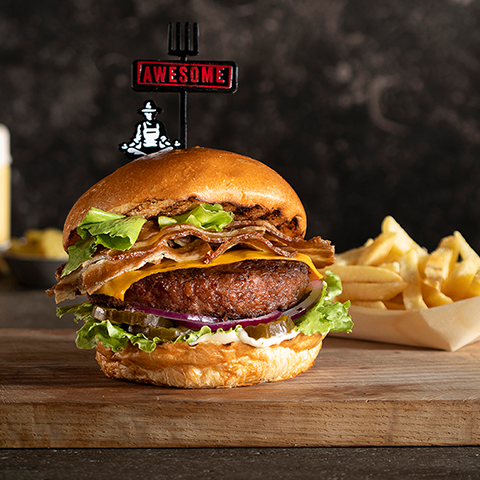As historic wildfires rage across the western US and parts of the Midwest rebuild from disastrous storms, we are seeing in real time the impact of climate change in driving more extreme weather events. Stemming the advance of climate change is an urgent task that requires collective action from businesses, governments, academic institutions, non-profit organizations and individuals. That’s why Nestlé is pleased to participate in Climate Week NYC, the largest international climate summit showcasing climate action.
Reforestation a key ingredient in net zero ambition
Nestlé CEO Mark Schneider spoke about the company’s ambition to achieve zero net greenhouse gas emissions by 2050 at the Walmart Sustainability Milestone Summit, part of Climate Week’s Live Hub. Our global strategy includes: transforming our portfolio to introduce more products that are better for you, better for the planet; sourcing 100% renewable electricity and scaling up nature-based solutions that remove carbon within our supply chain.
Restoring and protecting forests is one of the ways we are harnessing nature to fight climate change. Nestlé recently announced its latest reforestation initiative Project RELeaf, a program that will plant three million indigenous trees in Malaysia over the next three years. Nestlé will invest approximately $4.4 million (equivalent to CHF 4 million) into Project RELeaf over the three-year period.
Project RELeaf builds on the pioneering Kinabatangan Rileaf Project, established by Nestlé in 2011, which helped plant one million trees in Sabah. By widening its reach in Sabah and expanding for the first time to Peninsular Malaysia, Project RELeaf aims to scale up Nestlé’s efforts to restoring riparian forests in locations where palm oil is grown. For Project RELeaf, Nestlé will plant three million trees across the Kinabatangan Wetlands and Merisuli Forest Restoration in Sabah, as well as in forest reserves along the Central Forest Spine in Peninsular Malaysia.
These forest reserves provide sanctuary for a great diversity of flora and fauna, including threatened wildlife such as the orangutan, proboscis monkey, Asian elephant, Malayan tiger, sun bear and tapir. By establishing wildlife corridors, the program will enhance and protect biodiversity, mitigate human-wildlife conflict, and reduce negative impacts on critical water supplies. Nestlé will also engage with local communities to increase understanding of environmental protection and to help improve livelihoods.
Nestlé will collaborate with the Malaysian Ministry of Energy and Natural Resources, the Sabah Forestry Department, Malaysian Nature Society, the Tropical Rainforest Conservation and the Research Center, Kinabatangan Orangutan Conservation Project, palm growers, as well as local communities and entrepreneurs for community-based indigenous seedling production and tree-planting operations. Engaging in this type of place-based partnership is important to ensure the program’s long-term success, , the use of technology to increase transparency and supply chain accountability, and regional collaborations drive scaled forest conservation in places at highest risk of deforestation.
Nestlé’s latest effort in Malaysia is part of the company’s broader global reforestation initiative announced earlier this year, including plans to plant 3 million trees in key sourcing locations in the Americas and an approximate USD 2.7 million investment and partnership with the government of Côte d’Ivoire to protect and restore the Cavally forest reserve. These initiatives will help strengthen Nestlé's supply chain, making it more resilient.






